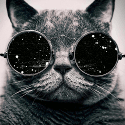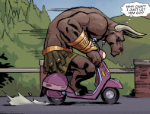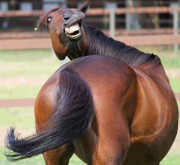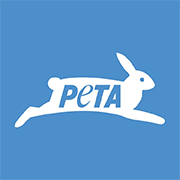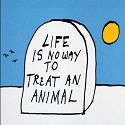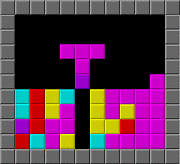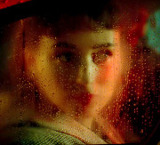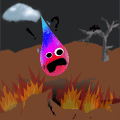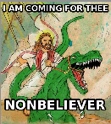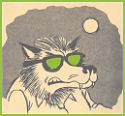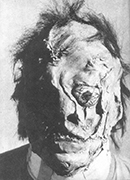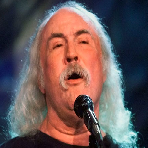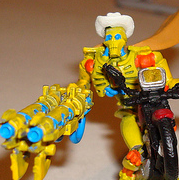|
CestMoi posted:Please don't read FIght Club as your post modern book. Why not?
|
|
|
|

|
| # ? Jun 6, 2024 16:52 |
|
quote:1. Phoenix (Vlad Taltos #5) Steven Brust I have slightly different reviews on my Goodreads. Some are longer or shorter or say different things depending on my mood when I wrote them. This month started well, then became a bit slow around the middle. I was able to turn that around though and get a decent number of books read, so I'm happy. Having a long round trip on busses gives me a lot of time to spend reading, and I'm glad that I'm not having trouble like I had last year. I still haven't really read a long book, but I have started reading The Warded Man, so maybe that will change if I finish it. 20 of 50 completed. I'm almost definitely going to raise my total next month. I only put it that low because of how few books I read last year. 12. Unto the Breach (Paladin of Shadows #4) by John Ringo - I don't remember how or where, but somebody linked to Cyrano's Let's Read of the first book of this series, and that made me want to continue where I had left off last year. And this one really wasn't that bad... after you got past the first 15-20%. I'll probably end up reading more John Ringo, because bad military fiction can really be enjoyable/a trainwreck worth watching. 13. Scourge of the Betrayer (Bloodsounder's Arc #1) by Jeff Salyards - I didn't find this book to be awfully good. The viewpoint character whined, the main character did bloody things, and people that we don't really care about died. Why can't epic fantasy books have happy endings anymore? 14, 15. Tiassa and Hawk (Vlad Taltos #13, 14) by Steven Brust - And I am now caught up to the series. I now have to wait with everybody else for new books in this series to come out. I really liked these books, though I'm not finding Tiassa overly memorable. Things happen, Loiosh makes funny remarks, gets told to shut up, everything's right with the world. 16-20. The Phoenix Guard, Five Hundred Years After, and The Viscount of Adrilankha: The Paths of the Dead, The Lord of Castle Black, and Sethra Lavode (The Khaavren Romances 1-3.3) by Steven Brust - The Khaavren Romances. 3 books, or 5, that are so good. Written in the style of The D'artagnan Romances, they follow some characters that appear in the Vlad Taltos series from 1000 years before Vlad Taltos to about 250 years before. It gives you some really good background on things that had only been hinted at throughout those books. You should definitely read these books though. I almost ended up stopping a little into the Phoenix Guard, and that would have been a bad choice. Now, I need to read something that is not by Steven Brust, I think. I still need to read Words of Radiance, but I may save that for spring break.
|
|
|
|
oliven posted:Why not? Because it is a) bad and b) not really very post-modern.
|
|
|
|
Ok I read another 4 books in February here they are: 5. Theft: A Love Story (Peter Carey) 6. Stalin (Kevin McDermott) 7. Heart of Darkness (Joseph Conrad) 8. Revenge (Yoko Ogawa) Theft I really enjoyed and raced through, it was fun and exciting and the two main characters had strong individual voices. The Hugh chapters could have been awful but were actually sweet and funny and added a lot to the story, and seeing the contrasting viewpoints of the two Boones on different events was interesting. It's a doggie dog world out there. Stalin is a good pared-down biography of, uh, Stalin. McDermott has a strong thesis which he sticks to throughout without relying on repeating it a million times over. Some nice history reading. Heart of Darkness is Heart of Darkness. I liked it. Revenge is a collection of 11 short stories. They're all connected to each other, some quite loosely, some very closely. They're dark, funny and weird. I read the whole thing in a day and I'd love to read more Yoko Ogawa now. Everything apart from Theft was quite short this month. I did read 150 pages of The Good Soldier Svejk was well, which I'm very slowly continuing to work through. It's one of those books where I get it and enjoy it, but chugging through all 750 pages of Czech interwar black comedy is a bit of a mission. I have some other stuff I'm looking forward to after I finish it so I'll try and crack on and break the back of it this week. I've ticked off short stories and biography from the booklord's challenge this month (18 and 21). Year to Date: 8 1. The Establishment: And how they get away with it (Owen Jones) 2. Mussolini and Fascist Italy (Martin Blinkhorn) 3. Love in the Time of Cholera (Gabriel Garcia Marquez) 4. All You Need is Kill (Hiroshi Sakurazaka) 5. Theft: A Love Story (Peter Carey) 6. Stalin (Kevin McDermott) 7. Heart of Darkness (Joseph Conrad) 8. Revenge (Yoko Ogawa) Booklord categories: 3, 5, 11, 18, 21.
|
|
|
|
My quest to squeeze non-SF into my genre trash reading list slowly continues. 3.The Napoleon of Notting Hill by G.K. Chesterton I liked a lot. Unlike a lot of Chesterton it doesn't beat you over the head with Christian propaganda and does a pretty good job with the absurd while remaining entertainingly written. I imagine it had more impact when he wrote it but the central story is solid. 4.A Thousand and Half Adventures which is a more or less complete set of articles of Richard Halliburton. I loved what I read from him before, this pretty much assured his position as the only travel writer I can read more than five pages from without being bored. Probably something to do with him having been a batshit insane adventurer fellow. Progress: 4/20 edit: ... ... That took me a while to get. 
anilEhilated fucked around with this message at 22:29 on Feb 28, 2015 |
|
|
|
|
anilEhilated posted:Progress: 4/20 
|
|
|
|
Hocus Pocus posted:January February 8. Rashomon and Seventeen Other Stories by Ryunosuke Akutagawa A fantastic collection written by a writer who benefitted from a short pocket of liberal education when Japan briefly opened itself to the world in the late 19th century. The combined influence of Chinese and Japanese folklore and literature, as well as Russians like Gogol and Dostoevsky make for unique stories filled with psychoanalysis and a fascination with madness. The introduction by Haruki Murakami was really interesting, too. 9. Haiku by Stephen Addiss, Fumiko Yamamoto, and Akira Yamamoto A collection of translated haikus with some discussion on translation, history and cultural significance. It was okay, I think there are layers lost in the translation that cannot be replaced, which makes me curious about any English native poets who have dipped into haiku. 10. Bad Science by Dr Ben Goldacre Fantastic book, highly recommended. It's a non fiction book written by British medical doctor and columnist Ben Goldacre who, each chapter, breaks down a particular pseudo science phenomena. Nutritionists, homeopathy, MMR autism - these are some of the topics he analyzes and criticizes as case studies to discuss pseudoscience rhetoric, how to interpret studies, and the power of the media. 11. Invisible Cities by Italo Calvino I think this was a goon book club read a while back? I really enjoyed it. Snapshot vignettes of cities, some fantastical, some metaphysical, always vivid. 12. Spring Snow by Yukio Mishima The first in a tetralogy. This is a very classic tragedy novel with all the pressures of social protocol, and doomed heroes that you would expect. It's point of difference besides the psychological insight, and vivid prose of the author, is its setting, 1910 Japan. An interesting time of cultural conflict and social change. This is a very well written book, and I think I would have liked it a lot more if it wasn't for all the dumps of philosophy. Action builds and a lot happens, but the novel doesn't feel like this is enough, and throws in chapters of a character thinking about a particular area of philosophy. And I don't mind the philosophical novel as a form, but this isn't (in my opinion) incorporated well enough into the narrative to justify it. It makes it drag at the most frustrating points. Some beautiful passages, however. 13. Tehanu by Ursula K Le Guin Third or fourth book in the Earthsea Cycle. Le Guin gets rid of the hero's journey here and instead Tehanu is a study on character and society. Gender politics and the role of women in society are especially prominent, and explored effectively and efficiently. And that's the key word - Le Guin is an incredibly efficient writer. Her passages are bare, but evocative. She does and says so much with so little, that it's easy to see why she's so widely popular. 13/72
|
|
|
|
screenwritersblues posted:3) Special Deluxe: A Memoir of Life and Cars by Neil Young End of January -February 4) Live From New York: The Uncensored History of Saturday Night Live by Tom Shales and James Andrew Miller: I was waiting for this one to come out in paper back for years now, but when I heard that it as going to be updated for the 40th anniversary (the special could have been a lot better) that was coming up late last year, I decided to bite the bullet and buy it. It was a solid read from start to finish and told you everything that you wanted to know about the show. 5/5 5) Inherent Vice by Thomas Pynchon: I like this book and it was a good book to get into Pynchon. Bring on the others. 4.65/5 6) The Marriage Plot by Jeffery Eugenides: I really liked The Virgin Suicides when I read it last year, but this one was missing something and felt a little too long at times. Granted, Eugenides is known for big a very descriptive writer, but at times, if felt too long. 3.76/5 6/45 Currently reading: Welcome to Paradise Now Go To Hell: A True Story of Violence, Corruption, and the Soul of Surfing by Chas Smith: So far it's excellent. I'm liking it and it's really interesting.
|
|
|
|
I keep wanting to update as I finish books rather than do a big info dump at the end of each month but then I forget so here we are. I finished Lillith's Brood and The Complete Stories by Flannery O'Connor, both of which I discussed a little last month. The latter two books in the Lillith's brood trilogy were good, I liked that they switched narrators which allowed Butler to explore different conflicting aspects of human nature in a pretty interesting way. O'Connor tends to have a formula of self-important people who loathe everyone around them getting some kind of hilarious comeuppance; sometimes those people are self-styled intellectuals who think they know more than everyone, or else uptight white ladies who think they are the height of morality. My favorite of these was The Partridge Festival, where two of these intellectuals meet over their shared interest in a local prisoner who they believe to be a victim of prejudice and hypocrisy, only to spend a bunch of time trying to one up each other until the stories climax. I also read The Best American Science and Nature Writing 2014, The Sound of Waves by Yukio Mishima, and This Perfect Day by Ira Levin. There were some fascinating essays in the BAS&NW although probably too many on global warming; some of my favorites were one about how animals mourne, one about the eventual mission to Mars and how it might be sabotaged by people's boredom, and one about protecting orange crops from succumbing to some greening disease by altering their DNA. Mishima is always good, I had previously read the Sailor Who Fell from Grace with the Sea, which was better than this and I am wondering why I waited so long to read more from him. This Perfect Day was pretty run of the mill Cold War era dystopian fiction along the lines of 1984 and Brave New World, although it had an interesting twist of the characters being completely brainwashed by chemical treatments, in a way that was sort've frightening but also laughably unrealistic, but at least worked as a metaphor. Anyway, I will try and start discussing books as I am reading/finished reading them so my thoughts are fresher. I am about to read Big Breasts & Wide Hips by Mo Yan. I will probably wait till later in the year to organize these into a coherent list and cross check against the challenges. Bye.
|
|
|
|
drat, falling behind again, going to have to read some picture books.
|
|
|
|
Guy A. Person posted:I finished Lillith's Brood and The Complete Stories by Flannery O'Connor, both of which I discussed a little last month. The latter two books in the Lillith's brood trilogy were good, I liked that they switched narrators which allowed Butler to explore different conflicting aspects of human nature in a pretty interesting way. I'm glad you liked it! February Update: Stravinsky posted:1. 7/52 books in a year 2. Red Rising - This book desperately wants to be Hunger Games. I was pretty excited at first to have a married protagonist in a YA novel. Then she kills herself without provocation. Pacing was fast, and was action-packed, but the main character didn't really have much of an arc...or personality, and a lot of the culture just didn't make sense. I don't see myself reading the next books, would not recommend. 3. Free Will - The essay makes a pretty good case for why free will doesn't exist, and why we are so opposed to the idea of determinism. The examination of the scientific evidence was thorough but not dry. I would have like to see the interaction of free will vs. determinism in religion and politics more, though. Brisk, light read, highly recommended. 4. Rain: A Natural and Cultural History - Won an ARC copy of the book late January, perfect fit for the challenge. Covered a lot of information, and didn't stick to one topic long enough to be boring, but felt very unorganized. Interesting enough. 5. The Walking Dead, Vol. 22: A New Beginning - One of the better installments in a long time. A significant time jump has occurred, and the story just seems fresher. Kirkman seemed to write himself into a corner in previous volumes with an over-competent, cartoonishly evil villain. There's some---not a lot, but some---character development for Rick and some pretty good conversations. The ending with the people posing as walkers has potential, but I'm sure it'll end up even more ridiculous to the point where I can't enjoy it. 6. Radioactive: Marie and Pierre Curie, A Tale of Love and Fallout - I expected this to be a straight-up biography, but it was mostly an art book with bits of biography stuck in it. I found the story of the Curies to be both uplifting and heart breaking. There's nothing sweeter than scientists in love. I thought most of the art was gross. I'm not an art person, I guess. 7. The Marshmallow Test: Mastering Self-Control - I apparently started this in September of last year and despite being initially incredibly excited for the book, it never seemed to hold my attention. I agreed with a lot of what the author said but I found myself often disagreeing with how he said it. He brings in Freud at one point; I think that was the first time I mentally checked out of the book.
|
|
|
|
Aphra Bane posted:Off to a good start Penguin's Poems for Life - edited by Laura Barber Tales of Hoffmann - E. T. A. Hoffmann Persuasion - Jane Austen PopSugar's 2015 reading challenge: 13/50 (I'm combining some of the challenge criteria, hence why the number's higher than books I've actually read) Penguin's Poems for Life was disappointing. It introduced me to some new interesting poets and a good chunk of its poems were decent, but overall it was just kind of bland and uninspired. Tales of Hoffman was a lot more interesting. Some of his stories were genuinely entertaining and creepy, though a lot of them had the same story arc and character types, which got tedious. Persuasion was great. It was such an uneventful book, really, yet compelling in all its restrained character interactions. I kept wanting Anne Elliot to be more assertive, but she was so resigned to her life, and believably so. Ugh, Austen's stories are so suffocating to read sometimes. But the romance aspect was really well done. Overall it was a lot more melancholic than I was expecting. An appropriate final novel to have been published, I guess.
|
|
|
|
Burning Rain posted:1. Giles Milton - White Gold: The Extraordinary Story of Thomas Pellow and North Africa's One Million European Slaves. History book that read like a Flashman adventure with less sex and more adoration of the English. I think I will slowly read all of Milton's books (this being my third). 7. Amin Maalouf - Samarkand. For some reason I was expecting something more than a straight historical political adventure novel, but that's what I got. Basically Eco-lite set in 10th/11th & 19th/20th century Persia with Omar Khayyam's manuscript being the tie between them (along with some nods to the contemporary Middle East). 8. Dino Buzzati - The Tartar Steppe. I don't think any other book has gotten to me so well in the last year or so. A slightly symbolic tale of a young soldier going to guard a fortress on the border with a country that seems to exist only in peoples' imagination and hopes. It's mostly about growing up and the disillusionment with life while always yearning for something big to happen, and the book does a fantastic job at portraying these feelings. 9. Elfriede Jelinek - Michael. Started off as a shock-lit with tons of graphic violence description, but then turned its attention to the infantile longings of the main characters, and the violence began to make sense as an exaggerated external showing of their feelings. This is Jelinek's first book and not something I'd suggest starting with, even if I ended up liking it more than I thought I would after the first 50 pages. 10. Juan Rulfo - Pedro Páramo. The book is often brought up to be the forefather of magical realism, and some of the more magical strands really appealed to me. However, once you scratched them off, the story of the village beneath the literary fireworks wasn't anything special and, unfortunately for my enjoyment, has been done often since Rulfo. 11. Oliver Sacks - Awakenings. A solid Sacks book, although not as good as The Man Who Mistook His Wife for a Hat or An Anthropologist on Mars due to relating too many case histories that understandably had a lot of repetition (even if they also had a lot of unique characteristics, and I can understand that it was hard to select as few as he did). If anyone is going to read this, I suggest skipping the introduction unless you're dying to read a technical description of Parkinsonism/L-DOPA debate as seen in early 70s/80s. The 100 page afterword was interesting, but I suspect some neurologists and students would get a heart-attack of Sacks veering into metaphysics and even Freud quite often. I will read his autobiography when it comes out this year, though, especially since he doesn't have many months left to live... 12. Karl Ove Knausgaard - My Struggle 1. Surprisingly enjoyable and different from the impression I had gotten from the reviews. It's not focusing on the banality of contemporary life and not even commenting on it (much), rather the contrary: it's a self portrait made up of 4 vividly recreated and very well written scenes that hold a strong meaning for the author.
|
|
|
|
saphron posted:January: 5. Trust Me, I'm Lying: Confessions of a Media Manipulator by Ryan Holiday (6. An essay) An angry, bitter critique of online media manipulation. The book read like a series of blog posts/essays slammed together and could have used some tighter editing, but it was an interesting read nonetheless. Good if you feel like being grumpy and/or depressed after about the current state of mass media. 6. Code Name Verity by Elizabeth Wein (11. Something on either hate or love) A bittersweet/sad story about a British intelligence agent and her pilot best friend who get shot down and separated during a mission into France during WWII. It's nominally YA (simpler language, very little on-screen violence, requires some suspension of disbelief) but the subject matter (torture, warfare, and especially one of the main scenes toward the end of the book) was darker and more nuanced than I expected, but definitely appreciated. The heart of the book is a female adventure story though, and I was surprised by...well, how surprised/happy I was to read a book focused on these two women and their friendship, instead of a traditional romance (teased about through interactions, and otherwise downplayed) or what have you -- rarer than it should be, for sure. The book wasn't perfect, but if you can roll with the implausibility of the story's premise, it's a great book and one hell of a tearjerker. 7. The Crown Tower by Michael Sullivan I wanted to like this book more than I did, but I'm willing to concede that starting with Riyria Chronicles vs. Riyria Revelations was a mistake, and have started on Theft of Swords to see if it works better. That said, I really enjoyed Gwen's story, and am sad that she's supposed to only be a minor character in Revelations. Also what the hell was up with that abrupt ending? :| 7/30 books so far, which is technically ahead of schedule, but I'm slowing down and have some dense books coming up: Autumn in the Heavenly Kingdom, The Hindu Mind, maybe Travesties or finally pushing through Arabian Nights. Also Traitor's Blade, which I'm super excited about starting!
|
|
|
|
Burning Rain posted:8. Dino Buzzati - The Tartar Steppe. I don't think any other book has gotten to me so well in the last year or so. A slightly symbolic tale of a young soldier going to guard a fortress on the border with a country that seems to exist only in peoples' imagination and hopes. It's mostly about growing up and the disillusionment with life while always yearning for something big to happen, and the book does a fantastic job at portraying these feelings. Now read Waiting for the Barbarians, you will not regret it.
|
|
|
|
Trek Junkie posted:My January update: My February update: I have read nothing this month and I feel great! Seriously, I spent much of my free time writing instead. I have started a few books that I hope to finish in March.
|
|
|
|
February is never a great reading month for me, unfortunately. This is what I got through: 7) The Last King of Scotland by Giles Foden 8) Fives and Twenty-Fives by Michael Pitre 9) As You Wish: Inconcievable Tales from the Making of The Princess Bride by Cary Elwes and Joe Layden 10) King Leopold's Ghost: A Story of Greed, Terror and Heroism in Colonial Africa by Adam Hochschild 11) Dear Committee Members by Julie Schumacher I got mental whiplash from jumping to King Leopold's Ghost from As You Wish, then on to Dear Committee Members. Basically leaping from pleasant nostalgia to deep misery to sensible chuckles. I'm currently reading Winter Siege, which is light as hell. I'd love to be able to line up my Wildcard read for the Booklord's challenge. Give me what you got!
|
|
|
|
Boatswain posted:Now read Waiting for the Barbarians, you will not regret it. It'll probably be the next Coetzee I read, yes. Looking forward to it!
|
|
|
|
I've been posting my thoughts on the books I've read in the "What Did You Just Finish Reading?" thread so I won't paste it all here. As of the last update I was at 9 books, but after February I am now at 16. Since my last update in this thread, I've read: Geoff Pevere - Gods of the Hammer Douglas Coupland - Worst Person Ever Joe Palca and Flora Lichtman - Annoying: The Science of What Bugs Us Janet Mock - Redefining Realness Nick Cutter - The Deep Emma Donoghue - The Room Sadegh Hedayat - The Blind Owl Here's my progress on the Booklord challenge: 1. The vanilla read a set number of books in a year. (Currently at 16/35) 2. Read 10 books by female authors (Currently at 4/10) 3. 4. Philosophy 5. History 6. 7. A collection of poetry 8. 9. Something absurdist 10. 11. 12. 13. Something dealing with the unreal 14. Wildcard 15. 16. That one book that has been sitting on your desk waiting for a long time 17. A play 18. 19. 20. Something banned or censored 21. Short story(s) 22. A mystery I'm currently reading Nick Hornby's latest book as well as a collection of poetry and a play. I took my assigned Wildcard out of the library (Black Ajax by George Macdonald Fraser) but the book was so old and beat up that it kept making me sneeze every time I opened it. Luckily, I found a clean copy in the used bookstore up the street yesterday, so I'll likely get to that sooner than later as well.
|
|
|
tookie posted:I'd love to be able to line up my Wildcard read for the Booklord's challenge. Give me what you got! Snorri Sturluson's Prose Edda.
|
|
|
|
|
thespaceinvader posted:1: Cryptonomicon by Neal Stephenson Next is Symbiont by Mira Grant. An interesting start so far.
|
|
|
|
Read 2 more books since like mid february, which ain't that much, but they were long books. First up: The Savage Detectives by Roberto Bolaño This book is insanely good, almost as good as 2666. it's about a bunch of poets doin thangs. The first and last parts are the same story, about a young law student living in Mexico City in like '76; the kid decides 'gently caress school' and hangs out with poets, writes poetry, and gets laid a lot. He meets two poet friends, who are the central characters of the novel, who start a poetry movement called 'visceral realism', which doesn't mean anything really, but is a kool way to develop cliques and poo poo on popular establishment writers. With these two poet friends, the young ex student develops a further friendship with a family with two young poetry writing daughters, and their prostitute friend. They all eventually get on the bad side of the prostitute's pimp, and have to flee all over Mexico, where they also look for clues about a poet from the 1920s. This story bookends the central (and longest) part of the novel, which is basically about the two poet friends life and travels from 76' to 98' or so, and how lovely life is. Bolaño is one of the greats IMO, and I can do nothing but give this book a 5/5 Next: Life and Fate by Vasily Grossman Vasily Grossman was a Russian journalist who saw a lot of poo poo that went bad in Russia & Germany in WWII. f'r instance, he was apparently the first journalist to study and write about German concentration camps, and his work in Treblinka was used at the Nuremberg Trials. He also did lotsa correspondence about Stalingrad. So this book is about the Russian & German experience of WWII, and ranges over tons of territory and experiences, from different concentration camps, Stalingrad, gas chambers, etc; there are even single chapters from the perspective of Stalin & Hitler, which is neat, because they are humanized and also made to be pretty pathetic, which they probably were, IRL. The book was written in 1960, IIRC, and was confiscated. It was flown outta the soviet union on microfilm, and eventually published in the West in 1980, and Russia or w/e in 1988. Grossman himself died in 1964 i think, so he didn't get to see the book in print. I think it was pretty bold to write a book so harshly critical of Stalinism not too long after Stalin died. There are a poo poo ton of characters, which is probably the biggest 'flaw' with the book. It took me like 300 pages to get a handle on who the major players were. parts were a little boring. BUT the scope of the book and the authors genuine kindness and empathy won me over. I think, also, that Grossman does an amazing job of describing the pressure of life under totalitarianism, and how individuals become broken/warped by the system. pretty dece, overall a 4.3/5
|
|
|
|
ALSO: can I get a wildcard? thanks
|
|
|
|
david crosby posted:ALSO: can I get a wildcard? thanks Rendezvous with Rama by Arthur C. Clarke
|
|
|
|
8one6 posted:Rendezvous with Rama by Arthur C. Clarke Cool. Looks sorta thematically similar to Stanislaw Lem (who I adore???)?
|
|
|
|
CestMoi posted:Please don't read FIght Club as your post modern book. here's a "novel" idea: people should read whatever they want (although fight club really isn't very good)
|
|
|
|
1984 - Orwell Read this as my banned book (banned in the USSR for obv reasons). It was good. I liked it. I felt like I had already read it due to its pervasiveness in popular culture, but I'm glad I pushed myself to finally read it proper. My only real complaint was that the section where the protagonist reads Goldstein's book was dull as all heck, and most of what was spelled out in it could already be inferred by the rest of the story. A few of my friends who liked the book admitted to skipping those passages entirely, so I guess I'm at least a little more dedicated than they are. MaddAddam - Atwood Had to finish the series after reading Year Of The Flood. Really good. I read some criticism of the trilogy that claimed Atwood doesn't really bring anything that new to the sci-fi genre. While that's true, that seems a petty complaint since a lot of sci-fi/sci-fantasy is derivative in places. That said, Atwood brought a touch of humanity and dignity to the end of the world that I rarely see in sci-fi books. Absolutely excellent. Also, the interaction with the main characters and the Crakers is phenomenal. I hadn't realized that it was something I needed in my life until I read it, as it was also hilarious. Overall, a satisfying conclusion. I put off reading Survival to read MaddAddam instead, and I'm glad I did. The former is okay, but was largely a review of what I already knew. I might get around to finishing it some day later.
|
|
|
|
Blind Sally posted:here's a "novel" idea: people should read whatever they want He's right that Fight Club isn't very post modern even if a bunch of people on Goodreads shelved it under that label. It's like telling someone not to read Game of Thrones for their history challenge.
|
|
|
|
i get what you're saying, but that's a terrible analogy, because fight club at least has elements of post-modernism
|
|
|
|
Haha yeah as soon as I was trying to find an analogy I was like "poo poo this doesn't really make sense but whatever it's early".
|
|
|
|
Blind Sally posted:here's a "novel" idea: people should read whatever they want I realise that sometimes I call people stupid for reading bad books but this time I was genuinely saying that the guy should reconsider or at least not go away thinking FIght Club is representative of post modern ism
|
|
|
|
in that case, i agree
|
|
|
|
mostly i just wanted to say "here's a 'novel' idea" in a book thread.
|
|
|
|
Can someone throw me a wildcard? (note: I read a lot of SF, but also shouldn't cross off anything else on the list...) 1. The vanilla read a set number of books in a year. (so far 7/52) 2. Read a female author (can't believe I haven't yet! so bad) 3. The non-white author (not yet) 4. Philosophy 5. History 6. An essay 7. A collection of poetry 8. Something post-modern 9. Something absurdist 10. The Blind Owl (Free translation if your ok with reading on a screen or cant find a copy!) 11. Something on either hate or love 13. Something dealing with the unreal 14. Wildcard (Some one else taking the challenge will tell you what to read) 16. That one book that has been sitting on your desk waiting for a long time 17. A play 18. Biography 20. Something banned or censored 21. Short story(s) 22. A mystery The Book of Strange New Things by Michel Faber Not what you expect. A good example of lit crossed with SF. Beautifully written with some fantastic characters, the symbolism is what really drove it home for me. Making Habits, Breaking Habits: How to Make Changes that Stick by Jeremy Dean A thoroughly well-sourced book, the author meticulously takes us through what creates habits, where they come from, good and bad habits and then how we can change them - or why we should/should not. Very interesting look at the processes of the mind that is well written (easy to digest). A few issues with the arguments, but these were minor points. Overall a solid mix of theory and practice. Fahrenheit 451 by Ray Bradbury Amazing. I was worried after reading some of his short stories and The Martian Chronicles that I would get bogged down, but the world is simple yet convincing, the writing beyond elegant, and the points as salient today as ever. An absolute must-read. Invisible Cities by Italo Calvino Yeah, look, the writing is good, really good, and there are some powerful images. But there's no narrative and to be honest I just felt like the metaphors were beyond me, and there's no shame in that. If there were metaphors? Only a handful of the descriptions of cities grabbed me. Definitely recommend it to creative writing students looking to study style, but aside from that, meh. Mirror of the Nameless by Luke Walker It is what it is. Not bad, author could probably work on character motivation ('We must find Ashleigh!'). The ending was pretty cool though and the action scenes were vivid and suitably horrible. Pacing was a little all over the place. Red Rising (Red Rising Trilogy #1) by Pierce Brown This is a mix between The Hunger Games and Warhammer 40,000 (which is of course heavily based on mythos and ancient empires). There was something really off with the pacing (felt like it skipped along like a jumping record) but it carried me and was definitely an engaging plot. The action is awesome, the research suitably deep for the audience and the characters are a bunch worth following, with some real standouts like Sevro. Some gender issues aside I'm looking forward to the next one in the series and all the twists and turns it will bring. Depopulation: An Investor's Guide to Value in the Twenty-First Century by Philip Auerswald, Joon Yun Reinforced some of my ideas around what the best investment opportunities would be in the future, namely recycling, healthcare and the 'meaning market'. Good short read on strategies for getting money in the near future with good references and back up data. Currently Reading: Debt: The First 5000 Years Chaos Walking Book 3 The Utopia Experiment Vietnam: Rising Dragon thehomemaster fucked around with this message at 00:04 on Mar 5, 2015 |
|
|
|
thehomemaster posted:Can someone throw me a wildcard? The Count of Monte Cristo by Alexandre Dumas
|
|
|
|
thehomemaster posted:
Tempted to give you the wildcard The Power of Habit, if you liked this, or Carrots and Sticks. I think you'd like them both.
|
|
|
|
Cheers for the suggestions but I reckon I'll take Monte Cristo as the Wildcard as it's something I wouldn't normally read.
|
|
|
|
February. 07. Carpe Jugulum. Terry Pratchett. Pretty funny, even if kind of dark. 08. Los mentales. Pgarcía. Pretencious, it was hard to find a story. 09. Fool Moon. Jim Butcher. Better than the first one. Fun read too. 10. Surface Detail. Iain M. Banks. Awesome. The end was great and satisfying. 11. Unless It Moves the Human Heart: The Craft and Art of Writing. Roger Rosenblatt. Not bad, but a little boring at times. 12. The Fifth Elephant. Terry Pratchett. Funny as hell, the story was really good too. 13. Me Before You. Jojo Moyes. Completely predictable. Some characters were terrible too. 13/60
|
|
|
|
February: 11. The Blind Assassin - Margaret Atwood 12. Devil in the Grove - Gilbert King 13. Fool Moon (Dresden Files #2) - Jim Butcher 14. Titus Groan (Gormenghast #1) - Mervyn Peake 15. To Kill a Mockingbird - Harper Lee 16. Of Mice and Men - John Steinbeck 17. The Year of Reading Dangerously - Andy Miller 18. Shadow Country - Peter Mathiessen 19. Romola - George Eliot 20. Native Son - Richard Wright 1. The vanilla read a set number of books in a year.: 20/52 2. Read a female author: 4/10 (adding Eliot, Atwood, and Lee) 3. The non-white author: 1/? (Richard Wright) 4. Philosophy 5. History: 2/5 (Devil in the Grove) 6. An essay 7. A collection of poetry 8. 9. Something absurdist 10. The Blind Owl (Free translation if your ok with reading on a screen or cant find a copy!) 11. Something on either hate or love 12. Something dealing with space 13. Something dealing with the unreal 14. Wildcard (Some one else taking the challenge will tell you what to read) 15. Something published this year or the past three months 16. That one book that has been sitting on your desk waiting for a long time: Titus Groan (I've had a paperback of the Gormenghast trilogy for.... a long, long time. Finally broke it out.) 17. A play 18. Biography 19. The color red 20. Something banned or censored 21. Short story(s) 22. Good books this month. Highlights included Devil in the Grove: Thurgood Marshall and the Groveland Boys about a civil rights case in Florida where four young men were accused of raping a young white lady. They didn't, of course, but the degree to which the law pursues them is sickening. Native Son, on the other hand, makes no bones about the protagonist's guilt but examines why he is guilty. Both were excellent reads. Beyond that, Shadow Country was a monster of a tome about a planter in Florida with a bloody reputation. (I see a lot of recurring themes in this as I type it out...) While it is dauntingly massive, it's a fantastic read. Finally, I reread some favorites - The Blind Assassin, To Kill a Mockingbird, and Of Mice and Men - because I always have to reread some books. Wildcard, anyone?
|
|
|
|

|
| # ? Jun 6, 2024 16:52 |
|
Chamberk posted:... Planet of the Apes by Pierre Boulle
|
|
|


